Guibert, De Beauvoir, Bassmann, Kertesz, Bellamy, Maso, Han, Juche, McCarthy, Ballard
A look back on 10 of my most memorable reads from 2022, including one that was actually published in 2022
Got back to reading more this year after a couple of not being able to focus like I used to. The original rush came mostly from experimental and often grief-related memoirs, in the midst of my trying to finish writing one, including a marathon filling in what I already hadn’t read of Ernaux. For a while fiction had lost its luster, like why the hell am I bothering? What could this ever actually effect? After a while, I started to remember I didn’t care what the effects were, or rather than the effects weren’t meant to be gauged. Reread the Nova Trilogy after that, on a whim to want to go back to see why I’d always thought it so essential since 16. Felt surprised to find it held up even more than I remembered. Funny to see how things people think as too far out there or too much a mess end up feeling even more magnetic to lived experience than more polished first-person reports. Burroughs would be a bridge into Sorokin, who I binged in mostly manuscript form and felt reawakened there to fiction’s energy. Suddenly found myself interested in writing short stories again after him, pleased by the immediacy of finishing something that doesn’t take a decade to complete. It’s not that fiction’s slow, I suppose; it’s that the way we’ve been taught to process it is all utility, a smokeshow. Nice to remember there are ways back out of the maze, even if the maze outside the maze is even larger.
Below I’ve written about ten of my most memorable reading experiences from this year, the two icons above excluded on the basis that they could both fill up the entire 10 alone. Only one of them was published in 2022, but I’ve never liked the stricture of thinking a year’s end reading list should be exclusive to the present. That’s a marketing exercise. And reading too much from what’s just appeared feels like a first-class ticket to chasing your own ass. With that to say, I’ve felt inspired lately by the slew of strange, exciting work coming mostly out of small presses and self-publishing lately, which feels as prolific as ever and instilled with a kind of energy that you just can’t get backed by market research. It’s easy to look at the big dogs and say that publishing is dead but really maybe the rebirth of American publishing lies in the demise of its sick dad. If you’re not finding work that speaks to you right now, it’s more likely a you problem—you haven’t been looking. The next book that shapes your life isn’t going to come up and tap you on the shoulder and say welcome. Those are spam bots, buddy. They’re making you sick, and they will never love you.
To the friend who did not save my life by Hervé Guibert, trans. Linda Coverdale [semiotext(e)]
Greatest title ever? Like Ernaux and Wojnarowicz, Guibert deserves a major space in the experimental memoir hall of icons, writing of his life in a way that cuts through its own language, to the bone. Essentially a journal of his death, To the friend recounts three months in the wake of his being diagnosed with AIDS in the 80s. The book is split into 100 small sections, some a single paragraph, some up to eight pages, which would seem to make it a breeze to read, especially given the unrestricted tone with which Guibert manages to write about his illness—from sardonic to metaphoric, gossipy to furious, introspective to deadpan. Right out of the gate, he installs the book with a leery sense of future hope, imparting how he’s told his friends he’s going to be the first to survive his diagnosis, a feeling that trails after him throughout as he continues to be aware of his symptoms, and the infections of those around him. No matter where he’s at, there is a brutal honesty here, leaving no question about the intensity with which he writes about an experience that many might imagine indescribable. Many of the scenes depict Guibert in the process of continuing to try to live his life among people, including a veiled depiction of Foucault, having recently passed away from the same fate. He walks a strange, dark tightrope, able in one breath to narrate surreal conversations with his doctor or talk shit about Thomas Bernhard’s writing, and in the next, to remind himself of what is happening to him, will continue happening. “This book that tells the story of my fatigue makes me forget it, while each phrase torn from my brain, which will be threatened by the intrusion of the virus once the little lymphatic belt has given way, only makes me want more than ever to close my eyes.” As the book wears on, a continuingly increasing sense of desperation and fear continues to set in, weaving its way deeply into the soul of the text, becoming more and urgent. This effect is paralleled in the titular scenario, as Guibert relentlessly documents the silence of one of his close friends, with whom the subject of his illness remains unspoken, far away. I’m not sure I’ve seen many books so deft at capturing the struggle to survive amidst such silence. Guibert continues to throw himself against the electric fence of his own brain, refusing to turn away from descriptions of himself and his peers that others might prefer to tidy up or erase. Real power there, in that this gives Guibert the freedom to write between the lines, as it were: not in desperation to become literature, but to exist. Simultaneously, he writes about the experience of writing itself, the difficulty of putting into words something both inarticulable and terrible, but as actual as life. Death isn’t the opposite of life, after all; it’s entwined, and this brave work by Guibert lays bare as possible some of the loneliest terrain inscribed between. An absolute form-breaking, heart-rending masterpiece.
A Very Easy Death by Simone De Beauvoir, trans. Patrick O’Brian [Pantheon]
Another slim, fearless tome willing to peer into the verboten, this book completely knocked me on my ass. Very certain that I’ve never read a caretaker’s narrative so willing to tip its cards for a look into the disorienting nature of grief and loss, here well-balanced against De Beauvoir’s plaintive and immersive tone. Her approach stands apart immediately for how unabashed De Beauvoir is in throwing the reader head-on into her life, as the book opens with a phone call letting her know that her mother has been hit by a car and is now in the hospital. From there, we are carried forward alongside her through a gamut of hoops, both with the bureaucratic process impressed upon the sick and their survivors, as well as a quick but perilous experience of watching your parent lose their grips on life. Incredible how much insight and experience S.D.B. is able to cram naturally into every page of the spare 106, recounting conversations, fragments of attention, medical processing in the present moment of the trauma while also weaving in reflections on her mother and herself across both lives. She isn’t interested in the window dressing and frills that other depictions of the process might attempt; rather, the prose remains refreshingly straightforward and plainspoken, giving us a real glimpse into the mind behind the mind in midst of crisis. Already in the midst of learning how to mourn, we see S.D.B. struggle with the influx of decisions and impressions that come with trauma. She intricately describes the physical experience of being in the hospital, making a subject of her mother’s flailing between trying to recover and slowly withering by including moments that become tender or funny in their specificity alongside the more sober, sinking feeling of the process we enter into without choice. She isn’t afraid to narrate her own uncertainty therein, too, intellectually unveiling her yearning to leave the trauma scene and carry on with her own life. Hard as it might be to not come off precious, overwrought, S.D.B.’s spare tone gives us room to breathe, and to actually believe her. Where there might be pity, we find grace; where one might wish to romance the endgame, we instead find an examination of life’s shape; most of all, in being allowed to witness her mother’s mix of rightful fear and unknowingness in approaching her own end, we find levity in holding the dark up against the light, for once realistic and sentimental both; a voice that feels both relatable reliable in an impossible space. As useful as a book about grief and loss could ever be, if what you’re looking for isn’t a wreath, but the wire that holds the wreath together.
Black Village by Lutz Bassmann, trans. Jeffrey Zuckerman [Open Letter]
I read the majority of this on a two-leg flight from coast to coast. Both of my seats were in the middle, crammed between two masked up folks on either side, and when I fly, I usually wear headphones the whole time so I don’t get trapped in conversation, so in essence I felt like a mummy, pinned in place, which would turn out to be a perfect compliment to this bizarre nightmare of a novel. Bassmann is one of many alternate pseudonyms for Antoine Volodine, the primary pseudonym of an author who has published dozens of books attributed to different monikers. His catalog, predictably, is various and unprecedented, spread across so many different modes and approaches that it remains hard to say for sure of his intent outside the page—an identity-less luxury of sorts, which allowed me in this case to feel as if I were reading in the dark. The dark, it turns out, is the primary feature of the setting of this novel; the back copy describes it as the bardo, a space between death and rebirth, full of uncanny architecture and disparate plates, as well as a variety of lurking creatures culled from realistic human life and the absurd. Very quickly, then, we become lost alongside the novel’s trio of principle characters—former poets, who appear to maintain agency inside the diminutizing landscape even if it continues to elude them why or what might come next. Like another of his translators, Brian Evenson, Volodine is incredible at stacking semi-unassuming post-Lishian-style sentences into open-ended labyrinths, waxing back and forth between Kafkaesque conundrums and arcane dialogue, following a kind of trail of consciousness through the unknown. To guide the reader, as much as to guide the plot itself, the characters tell each other stories of the world they’ve left behind to keep their heads clear, even if the stories themselves also seem apocalyptic or insane. Elements of a kind of existential surrealism, akin to The Twilight Zone, intermingle with McCarthy-like survivalist tales, and an archaic kind of sci-fi that instead of looking to the future, looks through death. If it sounds oppressive, it is and isn’t, as there’s an underlying sense of play in Volodine’s project overall, not quite Oulipian, not quite most any school, and yet assured as part of a universe even the polyphony of the author’s presence only further baits with an almost artificial form of intrigue. Are we really in the mouth of death here, or is something else going on? What are we to do with all these sprawling histories wedged between effects of madness? Why does it feel as if the book itself is a shaft inside a pyramid, thick with old air and only tiny plugholes through which to see the world that resembles ours? To me, this sense is akin as fiction gets to religious text, not because it needs to or even asks, but because it provides a means through which we might begin to imagine not merely bullshit answers to unanswerable questions, but theoretical scaffolding around the emotional texture of the same. It’s not quite witchcraft, unless you’re a prude, but it’s also listening back, tapping on its own surfaces, baiting you away into an illusion right there at the edge of the greatest mystery of all.
Dossier K. by Imre Kertesz, trans. Tim Wilkinson [Melville House]
Legendary author of several of the greatest Holocaust novels ever written, apparently Kertesz was sick to death enough of being interviewed and asked the wrong questions that he decided to interview himself. Dossier K. would serve to be his only memoir in this fashion, using the backdrop of his life and work to respond directly to right the misinterpretation of his intent, the bottom line of which intends to remind the reader of their complicity and responsibility in their own lives. Foremost on Kertesz’s mind appears to be the borderline between personal experience and the truth, which leads to fascinating distinctions in his process of writing fiction about atrocity, and the fetishistic kitsch that accompanies sharing and depicting trauma. The form alone makes this a miraculous text for any author in particular, as Kertesz is famous most of all for his unwillingness to be reduced, to savor easy answers in the hopes of pushing forward. His sense of humor, as well as his great depth of compassion and experience, sheds incredible light on what all too often feels like taboo, no matter which side of the political spectrum you align with. Comfortable with contradictions, and even delighted by their complexity, Kertesz is vital thinker for any person interested in understanding their own work, and the deep mind required in channeling violence of the highest scale into one’s art. I’d go into greater depths on some of the ideas and moves here, but I loved this so much that I gave it away.
When the Sick Rule the World by Dodie Bellamy [semiotext(e)]
After getting hooked on creative memoir stylists most of the summer, I realized it’d been awhile since I read Dodie Bellamy. Last was I picked Cunt-Ups off the shelf the other day just to flip through it and grin. This is a more recent book of essays, bought at City Lights because the title brought back that same grin again. Hard to describe the sense of freedom that Dodie’s writing reminds me of. Like someone writing because they love it, because it is a part of their life. Maybe that’s totally wrong for her, who knows how people approach themselves. Dodie can write about anything and make it interesting, most of all because of the natural flow of her voice and the way it trusts you, while also clearly on a mission of its own. The breadth of reach she can bring to her subject transcends the necessity of it, and yet she keeps finding ways back into themes and issues that feel essential and unattended. Like the way you can talk with certain friends. Intimacy, I guess is what it is, but at the same time profoundly border pushing when you least it expect it. An essay titled “July 4th, 2011” (for Pamela Lu) begins with the speaker sick in bed obsessing over the Casey Anthony trial. I guess I assume the speaker is Dodie because these read like essays mixed with memoir mixed with all other sorts of journalist and reflective devices but I realize nowhere on the book does it say it’s anything but the title besides that it’s a part of semiotext(e)’s Active Agents series. The essay follows the speaker’s attention while she researches the Anthony case, which quickly disseminates into a reflective essay mixed with browser history and a diversely layered takes on war and history among much else, resolving into maybe my favorite essay ending sentence of all time: “Because of its linguistic complexity, the average reader would find the Declaration of Independence more difficult to read than a novel or newspaper article.” It feels nice to be taught a lesson that you’re a part of. It’s harder to write about things you despise in a way that invites reflection and interpretation instead of base reactions, which feels like an essential component of what makes Bellamy’s direction in these prose devices so satisfying and engaging. In a time where it feels harder and harder to trust what’s really being said by whom about whom and why and to what end about anything, Dodie persists from a perspective that gazes deep in a way that counterfeits fakery. Which is also how originality leads to not only innovation of its own artform, but of ways of thinking. This is where the present war is taking place, not only in a conspiratorial fashion, but as a simple product of the way we live, tied to machines. It’s hard to see it when it’s all over you. But even to the extent that this book contains a wide variety of styles, there is cohesion in the portrait that they exhibit in their grouping, including texts on the displacing presence of Twitter in SF and experimental writing, prescription meds and self-healing, Kathy Acker’s clothing and her mother’s death via E.T. Dodie Bellamy reminds me there is life in writing, and inspiration mixed amongst bullshit. HAVEN’T WE HAD ENOUGH BULLSHIT ALREADY? Teach Dodie Bellamy in middle school, if not sooner.
Ava by Carole Maso [Dalkey Archive]
I love thick books with tons of space inside. Room to rummage around amongst fragments and step away when you like. Ruins of ideas pressed up against flashes of action culled from various realities. Too often the idea of tapering the experience of art for the contemporary attention span comes with sacrificing the possibility of breadth, as if a deal has to be made against one’s own life in order to be able to witness anything. It’s been too long since I read Maso but immediately I felt Ava concentrated the polyphonous, mixed media approach she’s become known for into its most essential state, a novel that echoes of Wittgenstein’s Mistress (WM is published in ’88, Ava is ’93) but also anticipates the even more effusive form Markson would explore in his 4-volume Notecard Quartet (1996-2007). Ava also feels richer for its interior voice, woven not only from fragments of the narrator’s authorial perspective and historical fact, but from a much wider array of literary mechanisms: open questions, loose strands of plot, pure symbolic imagery and poetic license, irregular use of second person, warnings, aphorisms, and other bits of language that at once refuse and frame their form. Like WM, Ava takes the perspective of a lone woman left to her devices in the mind; in this case, on a hospital bed, on her last day on Earth at 39. The book is split into three sections: Morning, Afternoon, and Night, each of which acquires a nuanced experience of its position in the disappearing timeline, approaching death. As we proceed, there is a mystical sense derived from simply understanding the conceit—a great example of the way that “the novel of ideas,” as people like to refer to works that overflow beyond mere plot, gains shape less from the nuts and bolts we expect of fiction, and more so from conceptual intent. This isn’t really quite a novel of ideas, though; more like a simulation of having one’s life pass before their eyes just after death, a residual salute to the narrator’s life in the midst of transition to beyond. What’s on the page isn’t always all that’s on the page, and quickly the novel begins to feel as much about the experience of reading as it is what’s being read. I’ll flip to a random page and type out a few lines:
Black sunflower fields.
Small horse.
Fellini’s Satyricon in Madison Square Garden.
And the hashish, and the skyscrapers all lit, and the snow.
New York.
Where do I run?
How many francs was it to the dollar then?
A sad judgment. A melancholic one.
Human blood and seawater have identical levels of potassium, calcium, and magnesium.
I want to go there.
I want to go back there.
You could spend forever getting stuck on interpretation of most any of these fragments, and or how they fit together with the next, but more so the novel appears to derive itself from its reception, and the understanding of what it means to read toward the end of the novel’s life, suspended completely in the narrator mind until the reader is let in. This sort of style is easily mistaken for stream of consciousness, as if it were a slight to call an object that mimics the patterns of the mind lesser than an object that pretends it already knows all that it needs. That’s not to say there isn’t story here, or that the story that there is will append itself onto your mind as more than words; more so it feels like a performance, an enlightenment that can’t be said any other way. The facts and proper names, where they appear, many out of the maw of aesthetic history—Kis, Beckett, Bachmann, Wagner, Verdi, Haydn—are more like guideposts, markers of memory we might follow out from in a multitude of ways, never satisfied with only one. It becomes hard, then, to even describe the book outside itself without the kind of guide words that appear from its presentation—the structure, even the back copy, and certainly what we might imagine we know of Maso. Odds are if you could have said it another way, you might should have, and therein lies the magic of a multiplicity of thought, where each line feeds into a portrait that could not otherwise be contained.
Psychopolitics: Neoliberalism and New Technologies of Power by Byung-Chul Han, trans. Erik Butler [Verso]
Wanting something that spoke more directly and philosophically about the world, I went on a mini-bender with the six-book set published by Verso under their “Futures” series, including works by Bourriaud, Virno, Auge, Berardi, Lorey, and my favorite of the bunch, this 87-page essay by contemporary Korean philosopher Byung-Chul Han. Hard to find a voice that cuts the difference between extremes in today’s climate, where so much seems to be more interested in converting people to a side, or rather at least only speaking with a political agenda that predicts the whole. Psychopolitics could not have been more refreshing in that mind, given Han’s incredibly condensed (most of the chapters are a few pages) and calmly reasoned approach to responding to the entwined senses of responsibility and guilt that come alongside being a part of modern capitalism. “The freedom of the citizen yields to the passivity of the consumer,” Han explains, in unpacking what he refers to as “spectator democracy.” Rather than doomsday doting, despite its soberness, Han’s approach feels sane-making in how it describes his contemporary take on the Orwellian view, including brilliant takes on shock, control, gamification, big data, and emotion-driven consumerism, for once resulting in an exploratory thesis that offers alternatives both to the meta-panopticonic present and what he sees as an only further damning neoliberal response. “Data is blind to the future,” Han reminds us, before closing the book with an argument for idiotism—that is, rather than responding to the prompts on their own terms, to defy conformity through idiosyncrasy, the in-communicable, and pure immanence. Fans of Foucault, Deleuze, and the like should find a wealth of food for thought here, in pushing back against predictable reaction and looking ahead in a way that fosters mental health as well as the means by which to survive on one’s own terms. Required reading for the present moment, or at least one of few texts I’ve come away from recently feeling reinvigorated, thankful for sense. Of all the books I’ve read this year I think this one has made the most immediate and lasting impact. Highly recommend the whole Futures set.
Mountainhead by New Juche [Nine-Banded Books]
I’ve had this on my to-read shelf for several years now, part of a cadre of books that always loom right on the cusp of what might come next. Sean Kilpatrick had mailed it to me to read with a note inside mentioning that he’d had it passed to him from another person, and upon discovering that again I finally felt curious enough to find out for myself—books-as-chain-letters seems compelling. New Juche is a pseudonym for an artist who regularly crops up among Dennis Cooper-adjacent circles, awash in a kind of mystique both for his blurry identity and the interior audacity of his ideas, which at once radiate at once prosaic and uncertain kind of energy. Almost like a journal the author is aware of an audience within, if mostly as a borderline to be transgressed. I feel like the word transgression on its own, when applied to art, has become a similar kind of boxing-in mechanism to experimental, as if you need a warning before you go in so as to not bump your head too hard. Fortunately (haha), New Juche’s style isn’t really one you can prepare for—Kilpatrick refers to Peter Sotos in his note, which is at least the proper kind of tip into Mountainhead’s texture, even though Juche’s prose is autobiographical by the label. What they share most is a kind of spellbound-in-extreme-Other mode of sense, a kind that revives for me the feeling of sneaking through Penthouse Letters as a kid, revised now to fit adulthood. A sense of disembodiment derived from being given the chance to peek, I guess, into a way of living that defies the supposed common sense of contemporary urban comport. Mountainhead finds Juche living alone in the Hmong village in upland Southeast Asia, a place where he lives in a state of extreme perversion in a Heart of Darkness sort of mode. He writes freely about his complex, obsessive masturbation habits and roving sexuality, involving himself with countless different kinds of people and situations with narration so intentionally intimate it’s hard to face. A peculiar form of voyeurism emerges in the wake of his extremely realistic travelogue-style reportage of prurient acts, a voice it’s almost hard enough to nail down the brunt of that you can’t quite place why it makes your stomach fill with heat. I found myself surprised to find I’d almost finished the entire book in one long sitting, thinking one more page. He comes a ton, watches a dog drown, intricately describes his cock, wanders wasted through red light districts, all described in an aggressively unvarnished and yet a feverish, fetishistic style that makes me think of fusing Delany with Thoreau. Juche remains enough of an enigma that it’s hard to say who’s side he’s on besides his own, creating a suspense in discomfiting detail. I can’t go on, I’ll go on. Woven amongst the would-be putridity, he meditates on daily life as an outsider in his village, while also feeling overcome by the limitless environment, dissolving the borderline between his flesh and himself. Even for as extreme, and certainly “tasteless” and “revolting,” many would find this, there is validity to the voice that’s hard to find in most memoir, either because the speaker would prefer not to share what they really feel, or because they’ve already varnished what they know with the values of the market, or because no one would ever want to hear. Juche’s voice splices the verboten with the existential in a way that, even if it all it does is make you ill or piss you off, leaves a kind of mark no one else would want to. No matter what you think, you can’t erase it. Finally, at least, it’s moved from To-Read to my Sade/Ligotti/Thacker shelf.
The Passenger by Cormac McCarthy [Knopf]
If you’re a McCarthy fan, don’t read anything anybody has to say about this book for a while. If you’re new to McCarthy, not sure I’d start here, though of all his work after the Border Trilogy, this is for me easily his best. As close to a novel of ideas as McCarthy might ever, which perhaps is why it also echoes of Pynchon, retrofitting the uncanny into the atomic sort of story that mostly remains hidden underneath the multitude of stories we make up about reality. Is the supposed subject of this novel a red herring, or is it attempting to describe something indescribable? What happens to a story that doesn’t appear to have a proper end? I’ll spare you the rest. You can get your own drink.
Concrete Island by J.G. Ballard [Picador]
Wonderful when filling in a hole on a work you’d missed from someone you’ve read a lot of ends up to be among their best. I don’t know how I always missed this one from Ballard; maybe because the title feels impenetrable, tight? Which is how the situation this novel ends up based on also feels: guy runs his car off of the highway into an Escherian location he can’t get back out of? A vortex in the middle of an extremely brutalist contraption? The first half of the novel walks the wonderful line between enigma and logic, bending further the longer we remain moored in the protagonist’s perspective. Ballard’s clinical, uncanny use of close third person imbues the narrative with an escape room type feel, Kafka wrapped in Borges maybe, as the protagonist, Maitland, slowly exhausts his survivalist options and instead begins to resort to further and further extremes. Some Kobo Abe-style implicit metaphysics, too, walled off behind the simplistic narrative structures, until eventually one of the setting’s hard walls proves softer than it seems. If Amy Hempel was right when she said, “The more literal you are, the more metaphoric people will think you’re being,” then Ballard must be among the most metaphorical fuckers ever. Over 24 mostly very short chapters, each with titles like The perimeter fence, The air-raid shelter, The duel, Delirium, it feels wonderful being spun around and forced to try to visualize an impossible scenario in this manner, understanding the deeper context of the prior story of Maitland’s life derailed from where it might have been at the beginning of the novel. Maitland remains aware his prior life is out there somewhere, his wife and his career, and yet something in his ongoing situation, as it unravels, holds him in suspense over what might happen if he remained disappeared in plain sight forever? Of course he’s not alone, though, and of course as soon as he discovers he isn’t, he begins to become someone else. Even as it devolves into something like a Cronenberg’s Lord of the Flies a little, Ballard’s ability to inflict deep psychology into magnetic sentences makes a page-turner out of madness. Don’t tell Netflix.

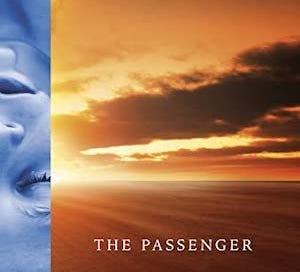



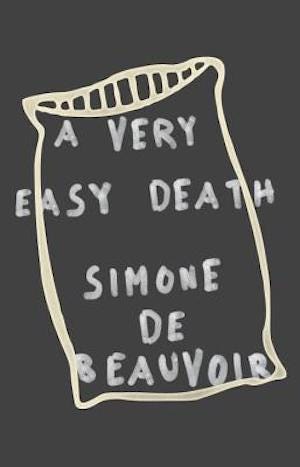
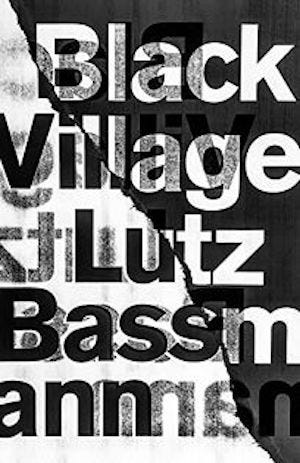

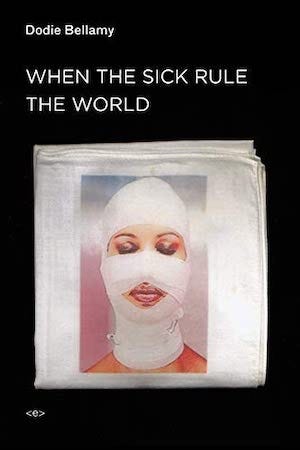
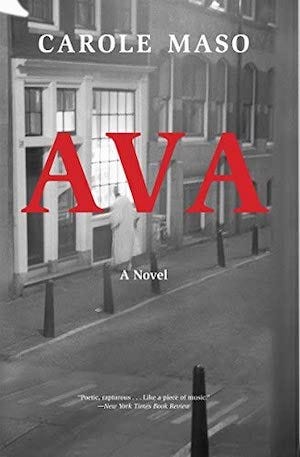
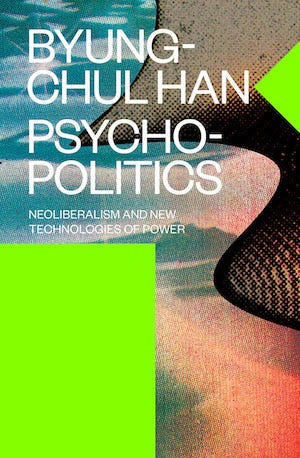
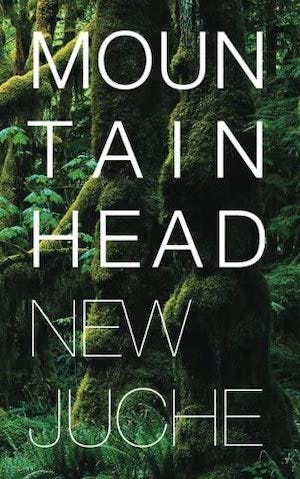
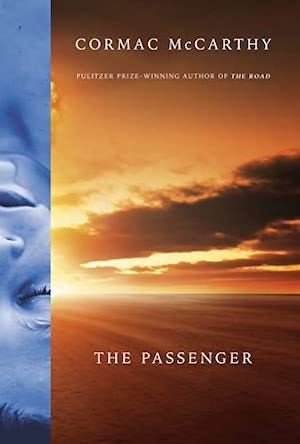

So pumped for this substack/throw back to the old Vice columns. Critical Blake Butler may be my favorite Blake Butler.
Totally agree with the Guibert and Bellamy and De Beauvoir. Would also recommend her book on Sartre reissued at the same time with a Very Easy Death. Adieux I think it's called. Two of the best death books.
killer list. that guibert has been floating around me for a while, stoked to finally crack it. can't wait for mccarthy on my xmas break!
and scott is so right! critical blake rules hehe